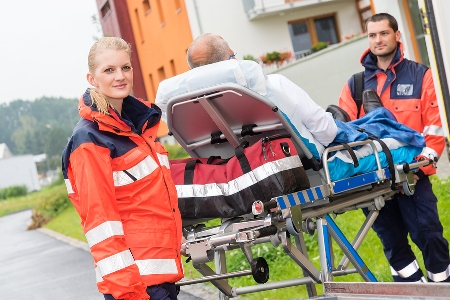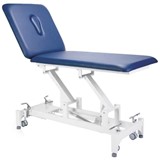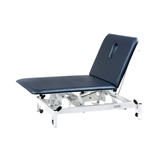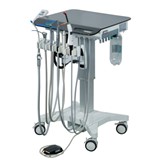Phillip Pittis suffered a near-fatal heart attack at his home in March and by the time he realised how severe his condition was, only the advanced skills of paramedics allowed him to arrive at hospital alive.
Port Macquarie Ambulance Acting Station Officer Brendan Koivu said paramedics Kylie Dixon and Tony Miller successfully employed a new cardiac treatment called thrombolysis.
"Thrombolysis has, until recently, only been available to hospital doctors for patients suffering critical illnesses like heart attacks or strokes," Koivu said.
"Advances in paramedic training, skills and equipment mean we're now bringing this treatment to pre-hospital care across NSW.
"Phillip's case is an excellent example of its success. Heart attacks are caused by a clot disrupting blood flow to the heart. New equipment means we can identify some attacks outside hospital. Scans are transmitted by paramedics to a doctor who we consult with before initiating this life-saving treatment.
"Paramedics say 'Time is Muscle' when it comes to this treatment, as the longer the heart attack continues the more potential heart damage is done. This can eventually lead to the heart stopping.
"There's no doubt the fact paramedics were able to perform one of the region's first thrombolysis treatments at Phillip's house instead of after the trip to hospital has saved his life,"
"Everything was a blur, and next I knew I was in an Air Ambulance heading to Sydney," Pittis said.
"When I thanked a doctor for his help he said, 'don't thank me, thank the paramedics in Port Macquarie'."
Pittis thanked everyone who helped him, including the assisting paramedics, hospital staff and Air Ambulance staff who transported him to Sydney the next morning.
He and the paramedics also used the reunion as a chance to call on others in the community to recognise the symptoms of heart attacks so help can come before it's too late.
The paramedics were more than happy to see him back in town, saying incidents and outcomes like Pittis's were the reason they were paramedics in the first place.
"We don't often reunite with the people we helped, and Phillip's case is one I'll never forget," Miller said.
"Today is a great chance to see him again, knowing that training made such a difference."








-160x160-state_article-rel-cat.png)




-160x160-state_article-rel-cat.png)






